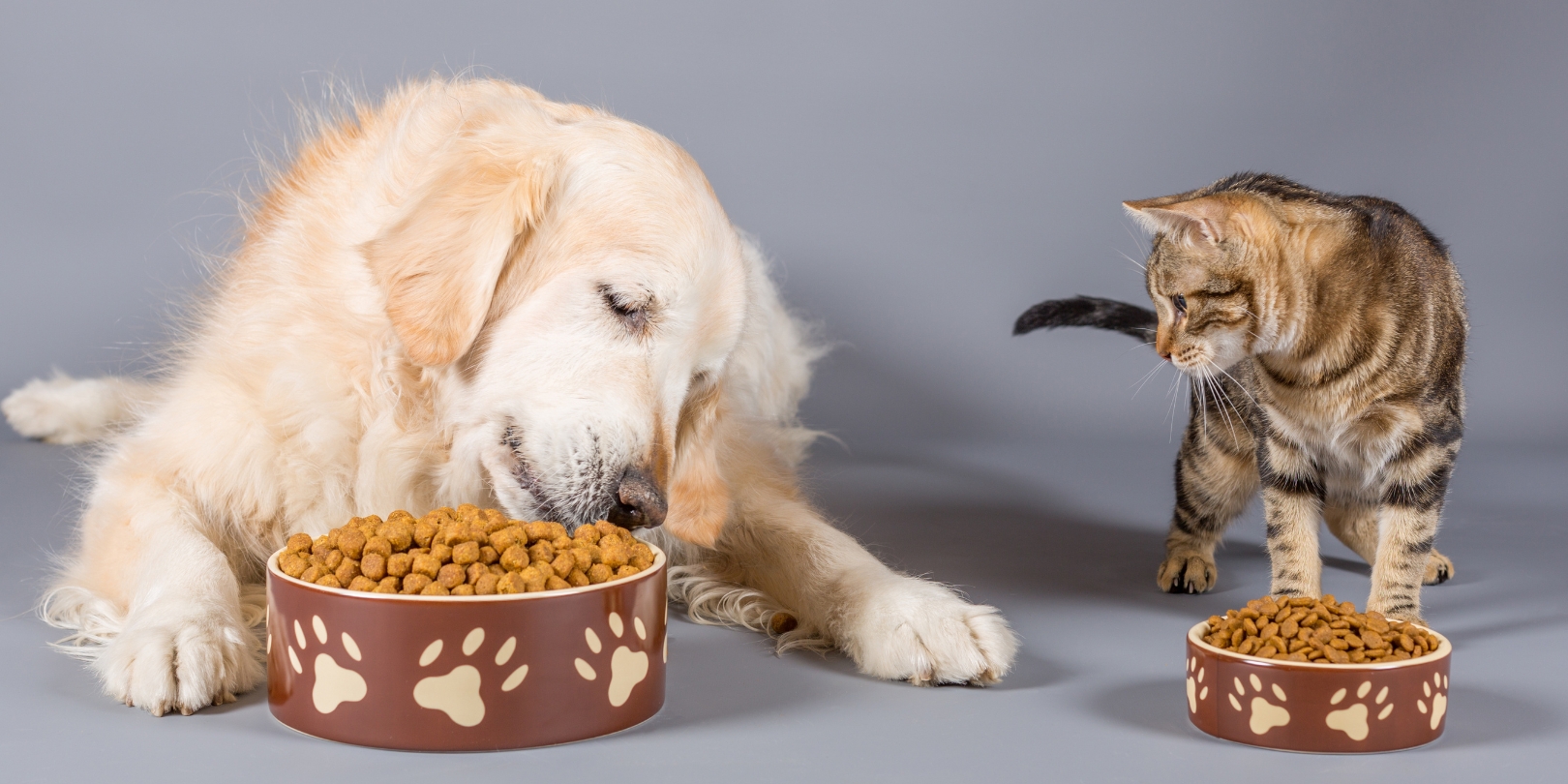Myth or Fact: Can Cats Eat Dog Food?

xr:d:DAFo1FL9DFI:492,j:1421284219116661225,t:23080307
Maintaining a proper diet is crucial for the health of our pets, so it’s important to understand their specific nutritional needs. The question often arises: Can cats eat dog food? While some believe that cats and dogs can share the same food, there are important distinctions in their dietary requirements.
In this blog post, we will delve into the myth or fact surrounding this topic and explore the different nutritional needs between cats and dogs. We will cover the potential risks associated with feeding cats dog food and shed light on why it is important to provide cats with a diet tailored to their specific needs.
Nutritional Differences and Needs
Cats are obligate carnivores, meaning they require specific nutrients found in animal tissues for optimal health. On the other hand, dogs are omnivores and have a more flexible diet. Cat dry food and wet food are formulated to meet the specific nutritional requirements of felines, including higher protein content, taurine, arachidonic acid, and other essential nutrients that cats need for their overall well-being.
Feeding cats dog food can also pose risks in terms of food safety. Dog food may contain ingredients that are safe for dogs but potentially harmful to cats. For example, some dog food formulas may include certain additives that are not suitable for feline consumption. Feeding cats a diet intended for dogs can increase the risk of gastrointestinal upset, allergic reactions, or other adverse health effects. To ensure the optimal health and nutrition of your cat, it is always recommended to provide them with a diet specifically designed to meet their unique nutritional needs.
Protein Requirements
Cats have a higher protein requirement than dogs due to their unique metabolism. Protein is crucial for various bodily functions in cats, such as muscle development, tissue repair, and the production of essential enzymes. Dog food typically contains lower protein levels than cat food, which can be inadequate for meeting a cat’s dietary needs.
Taurine
Taurine is an essential amino acid for cats that they cannot produce on their own, so they must obtain it from their diet. While cat food is fortified with adequate taurine levels, dog food generally lacks sufficient amounts. Prolonged taurine deficiency can lead to serious health issues in cats, including heart problems and vision impairment.
Vitamin A
Cats require a dietary source of preformed vitamin A, as they cannot efficiently convert beta-carotene (found in plant-based foods) into the active form of vitamin A. Dog food often contains beta-carotene as a source of vitamin A, which may not meet the specific needs of cats. Insufficient vitamin A can lead to various health issues in cats, including vision problems and compromised immune function.
Other Nutrient Differences
Apart from protein, taurine, and vitamin A, there are several other nutrient differences between cat and dog food. For example, arachidonic acid, an essential fatty acid for cats, is often absent or found in lower amounts in dog food. Cats also require specific levels of niacin, pyridoxine, and vitamin D that may not be adequately provided in dog food formulations.
Final Thoughts!
Ultimately, the idea that cats can eat dog food is a myth. Cats have unique nutritional requirements that differ significantly from dogs. Feeding cats dog food can lead to nutritional deficiencies and health problems. It is essential to provide cats with a balanced diet specifically formulated for feline needs. Consult with a veterinarian to determine the best diet for your cat, ensuring they receive the necessary nutrients for their overall health and well-being. Remember, when it comes to cat food, it’s always best to choose quality cat-specific products that meet their specific dietary requirements.
Your Pet’s Best Interest, Always
At Pet Institute, we take pet care seriously. We're dedicated to transparency, impartiality, and the well-being of your pets in every article, review, and recommendation we provide. Our unwavering commitment to these principles ensures that you, our valued reader, always receive reliable and unbiased information. Let us be your trusted guide in the world of pet care and companionship.